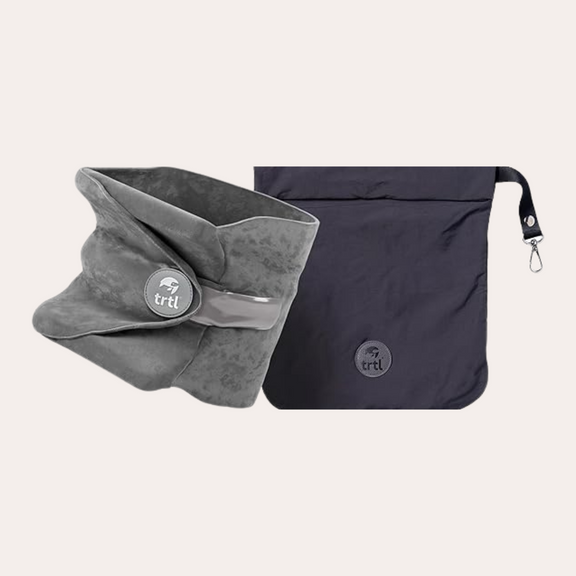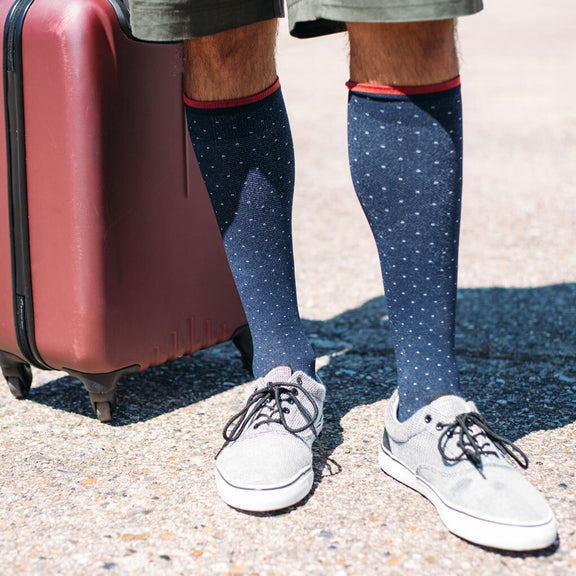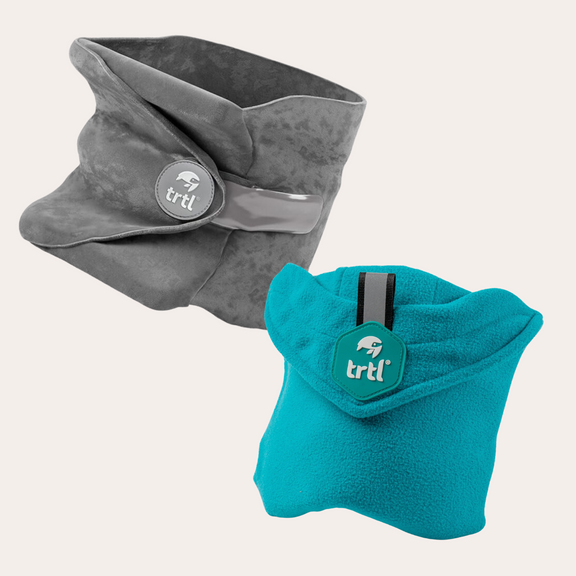Jun 28, 2024
The 10 Most Common Airbnb Scams To Watch Out For This Summer
By
Aneta Milanowska
The holiday season is fast approaching, and whether you're planning a getaway overseas or a staycation, choosing the right accommodation can be key when creating the holiday of your dreams.
While hotels have long been the most popular choice, a new contender is quickly becoming the go-to for holiday accommodation. Airbnb has rapidly gained popularity and users globally, with 7.7+ million active listings on the platform at any time.
However, with the rise in Airbnb usage comes an increase in scam artists impersonating hosts to trick unsuspecting holidaymakers out of their hard-earned cash. In this Trtl Travel blog, we've put together our top tips for spotting and avoiding Airbnb scams — so you can relax on your holiday knowing that your trip is protected.
What is Airbnb?
Airbnb is a global online platform that allows people to list their properties as short-term rentals. Using the site, holidaymakers can temporarily book apartments, houses, and even mansions anywhere in the world while they are away. Praised for its user-friendly interface and simplicity, the platform currently has 5 million registered hosts and over 150 million active users.
Many Airbnb rentals are second homes for those living in another part of the country or even abroad, but some may also be shared properties — meaning that the host lives in the property full-time but rents out a room or wing to guests.
The site has become famous for offering an alternative to hotels, with many properties advertised for their unique decor or location — helping to revolutionise the holiday accommodation industry. Airbnb has also become a common choice for city breaks, offering the perks of living in the city for a short while.
In 2015, there were 15 million users across the States and Europe, which rose dramatically to 33 million in 2018. In 2023, 448 million bookings were made on Airbnb, a 13.9% increase from the previous year.
What are Airbnb scams?
For those wondering, can you get scammed on Airbnb? The answer is — absolutely.
Airbnb scams use the platform to trick people into paying for subpar or actually nonexistent properties. These can take many forms and are designed to target holidaymakers of all ages. With the rapid increase in Airbnb users, online scam artists have capitalised on the increased demand for holiday properties in desirable destinations, leading to some losing thousands of pounds.
Now, with Airbnb being recognised as one of the leading sources of accommodation around the world, external platforms like Booking.com also allow you to rent an Airbnb property through them — which has led to a new wave of double-booking scams. These scams see properties listed both on Booking.com and Airbnb, with different parties unknowingly booking the same property at the same time.
The importance of being aware of scams
Most of these scams rely on people's naivety and lack of knowledge, so the best way to protect yourself from falling victim is to make yourself aware of how to spot a scam on Airbnb. Here’s the ten most common scams on the platform, helping you stay safe while travelling.
1. Fake listings
This scam sees fraudsters create listings with an address for a property that doesn't exist. The scammers take the payment and act like everything is normal, leaving you stranded with nowhere to stay when you arrive at the 'property' with your luggage.
The good news is that Airbnb is vigilant about cross-referencing listings with existing addresses to remove fake listings — however, they aren’t always able to do so before a guest makes a booking.
2. Phishing scams
While most Airbnb scams occur or originate on the site itself, phishing scams don't take place on the Airbnb platform at all. Instead, scam artists create a convincing replica of the site to trick users into placing a booking and — therefore — parting with their payment details, which the fraudsters can then use as they like.
The official Airbnb UK site address is airbnb.co.uk, and any property listings should include this website address in the URL. Additionally, another way to ensure you’re on the correct site is to check for the secure-site padlock in the URL bar.
3. Inaccurate property descriptions
Otherwise known as a bait-and-switch, these scams prey on desperate holiday-goers by creating inaccurate property descriptions and images that make the property seem worthy of staying in. However, the actual property often looks very different from how it's portrayed online. Usually, when the guest arrives, they will be told that for whatever reason, the original property is no longer available. They do, however, have another place for you to stay — the real property — which is usually very run down.
4. Fake reviews
As the name suggests, this scam uses fake reviews left on a property to make it seem better than it actually is. You may find that this often works alongside the inaccurate property description scam, helping to hide fraudulent activity by inflating the number of guests who have stayed at the property to reduce suspicion. Usually, these fake reviews are relatively easy to spot, using the same grammatical errors and spelling mistakes. In some cases, the reviews may even copy the same wording!
5. Overpayment scams
The overpayment scam targets the hosts of a property. In this scam, the guest will 'accidentally' overpay for their booking and request a refund, asking the host to send the difference to a third party. Unfortunately, the payment method for the initial booking is often illegitimate, meaning the host usually pays for the guest's 'refund' out of pocket.
6. Multiple listings
With over 99 million Airbnb bookings made in Q4 of 2023 alone, hosts know that some guests will likely be willing to pay a bit extra for a property in a competitive location. While Airbnb requires hosts to set a fixed price for all guests, some get around this by listing the same property multiple times at different price points. The host will then proceed with the booking at the highest price, sometimes even creating an auction among the guests who have booked the property to drive prices even higher.
7. Theft and damage scams
Theft and damage scams are designed to manipulate Airbnb's liability clause, which holds guests financially responsible for any damage they inflict on a property. In this scam, hosts fabricate damage to the property after a guest has stayed, meaning they have to pay for any repair work. Usually, hosts create photoshopped images of damage or charge guests for damage that was already there when they arrived.
Another twist on this scam involves hosts overcharging for legitimate damage—such as falsifying receipts for carpet cleaning at a much higher price than was actually paid. This scam can be pretty lucrative, as these fees are automatically charged to the guest's payment method.
8. Identify theft scams
This is another scam that targets hosts. In it, the guest uses stolen documents to impersonate someone else when creating their Airbnb account. This is usually so they can use rented properties for illegal activities while maintaining anonymity, which could result in the host being held legally responsible.
9. Airbnb account hacking
There are many reasons why scammers might want to hack into legitimate accounts, from leaving fake reviews that seem more legitimate to accessing personal information to impersonate you.
Scammers may hack into legitimate accounts to access payment information or make fraudulent bookings to their properties. This can be accomplished via phishing campaigns, which allow the scam artist to access sensitive information.
10. Hidden cameras
This last scam is possibly the most shady and designed to extort money via blackmail. Firstly, it's important to note that cameras are permitted within Airbnb properties but only in common areas like living rooms and kitchens. It's also vital that these cameras are disclosed to the guest ahead of time.
However, as the name suggests, secret cameras are hidden throughout the property — often in private areas, such as bedrooms and bathrooms. Guests are notified about explicit footage of themselves once they have left the property — usually being told that the footage will be deleted if the guest pays the requested amount.
How common are Airbnb scams?
An analysis of over 127,000 Airbnb complaints conducted in 2021 found that nearly a quarter (22.3%) mentioned some form of scam, including fake reviews, account hacks, and multiple listings. This converts to 28,325 complaints that reference being scammed on the platform.
Although being caught in a scam when trying to secure your holiday accommodation can be a scary thought, it's vital to remember that most listings on the site are legitimate. Airbnb scams are rare, given the millions of properties on the site. However, it's crucial to stay updated with the latest scams to ensure that you don't accidentally fall victim.
How to avoid Airbnb scams
While awareness is undoubtedly essential to help you avoid falling victim to these common Airbnb scams, we’ve put together our top tips to ensure you're well-prepared for making your bookings during the summer season.
1. Research the host and listings
Before placing any bookings, the first step is to research the host and their listings.
Sometimes, avoiding an Airbnb scam is as simple as taking ten minutes to research the host you plan to book with. Take a look at their profile, and make a mental note of what you see. Brand-new profiles with little to no reviews are a big red flag. Hosts that have been active for a long time and have many positive reviews suggest that the listing is likely legitimate.
However, it's important to check the listings to ensure the host isn't listing the same property at different prices. If all signs seem positive, there is a fair chance that the host is reputable.
2. Use Airbnb's online messaging and payment system
Many scams rely on tricking users into making payments on an external system outside of Airbnb, which could leave you exposed without payment protection. That's why it's important to only use Airbnb's online messaging and payment systems.
Airbnb doesn’t offer any form of compensation for those who fall victim to any scam requiring them to pay outside of the site. This means that you could be left out of pocket for the cost of your fraudulent booking unless you can reclaim the amount directly through your bank.
In contrast, if you are scammed through Airbnb directly — such as through a bait and switch listing or overpayment scam — Airbnb are liable for refunding you the total cost of your losses, which is why it's so important to stick to the official website's processes for communicating with and paying hosts.
3. Consider 'Guest Favourites'
'Guest Favourite' properties are how Airbnb promotes popular, reliable properties. To feature on the list, a property is judged based on:
- Overall star ratings and feedback in guest reviews
- Ratings for check-in, cleanliness, accuracy, host communication, location and value
- Host cancellation rates
- Quality-related incidents reported to Airbnb customer service
- A minimum of 5 reviews in the past two years
Each of the properties on the Guest Favourite list has been hand-selected by staff at Airbnb directly, based on a range of factors, including the number of reviews, cancellation rates, and general review ratings. This ensures that the promoted properties have a great reputation — meaning that the list is a good place to find trustworthy accommodation.
4. Stick with 'official' discounts and offers
Illegitimate discounts often trap users in data phishing scams, tricking them into clicking on replicated websites. This is why it's important to only use legitimate discount codes—such as those readily available on the site or published in printed magazines and newspapers. Airbnb will also occasionally send out user discounts via email, though it’s crucial to check the sender's email address to ensure the code is from a legitimate source. These email addresses will likely end in @airbnb.co.uk or @airbnb.com.
While a great discount can be hard to resist, it's important to think about the sources and ensure that you're not blindly clicking ads that have been sent via email or included in website pop-up ads.
What to do if you have been scammed
If you've been unfortunate enough to get caught by scammers when trying to book accommodation, there are some things you can do to reclaim your money. The main thing is to stay calm and think rationally about the situation and the steps you need to take.
If you placed a booking via debit or credit card, you're lucky. These payment methods protect you from fraud, meaning you can go to your bank and recover the money from the scam artists. Unfortunately, the same cannot be said for bookings made using a gift card. This is essentially the same as paying via cash, meaning that you will not be able to be reimbursed for the amount taken — which is why we recommend only paying using your bank card in future.
Airbnb has a dedicated resolution centre that allows you to request a refund before or after your trip. If you arrive to find that the property looks different from what is advertised, the resolution centre can help you get your money back. However, you must lodge your complaint no later than 24 hours after noticing an issue — which means you can't simply get a free 4-day stay by claiming you didn't like the property when you get home.
If you are logging a complaint with the resolution centre, make sure you have evidence of the listing and photos of the property taken directly by yourself. This evidence will be used to decide whether your claim is valid.
Is Airbnb trustworthy?
Generally, Airbnb is a safe platform that can be an excellent option for finding unique accommodation rather than staying in a standard hotel room. The site is secure, meaning that users are protected from fraud as long as they remain on the platform. A dedicated customer service team can assist with any problems during your stay as well as directly contacting the host.
However, as with any other platform, there is always the possibility of falling victim to scam artists, so we recommend taking your time before booking to ensure that a listing is legitimate and you're not overpaying for your trip.
Enjoy the journey with Trtl Travel
As we kick off this holiday season, it's clear that finding suitable accommodation for your trip is an integral part of creating your ideal holiday. However, we understand that the journey is just as important as the destination.
Staying relaxed and comfortable while travelling is an essential part of the holiday experience. With the Trtl Travel Pillow, stiff necks and aching muscles are a thing of the past.
Or, if you're looking for more travel advice, find everything there is to know with our blogs.


















